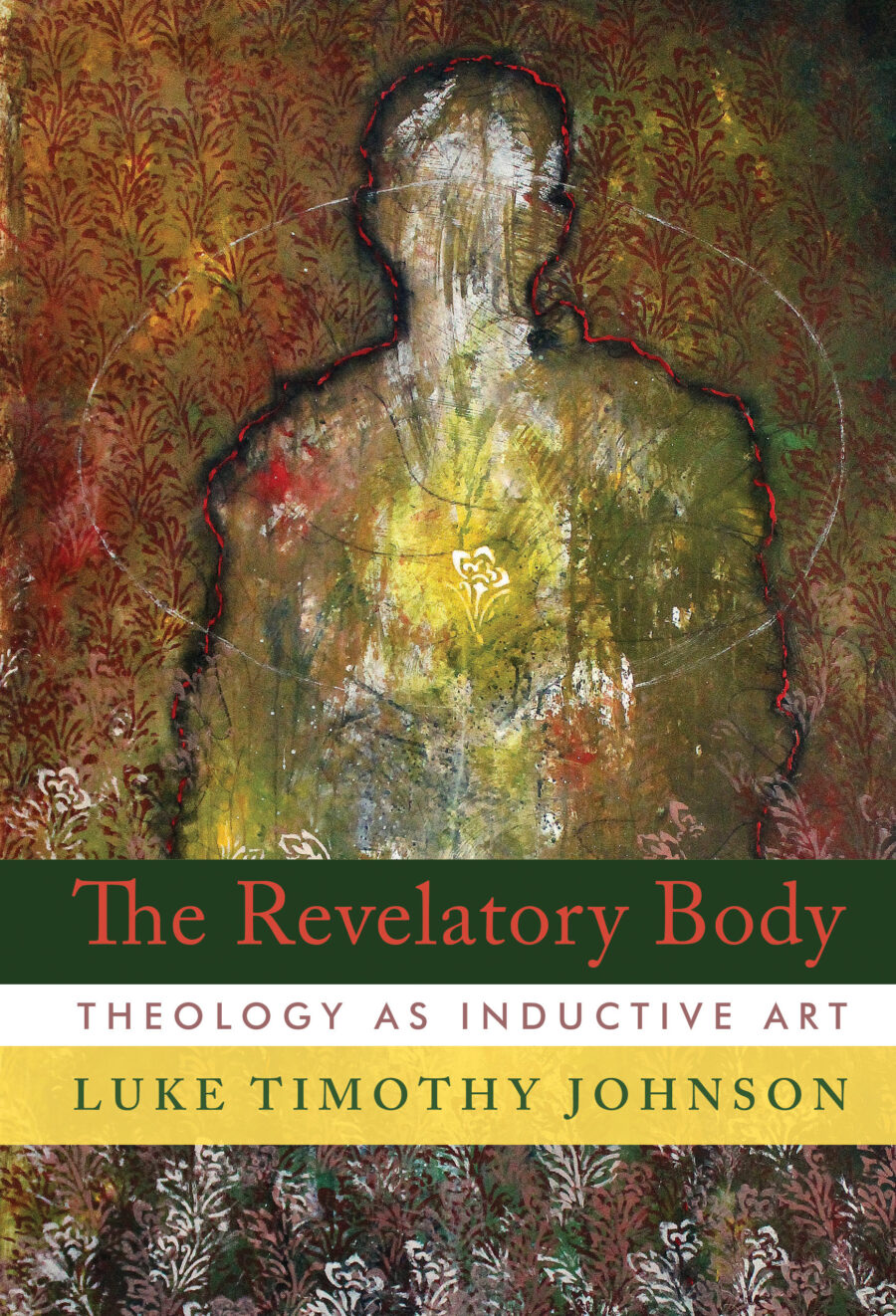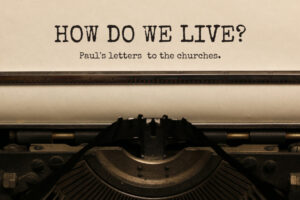JOHNSON, Luke Timothy. The Revelatory Body: Theology as Inductive Art. Grand Rapids: Eerdmans, 2015. pp. 256. $25.00 (Hardback). ISBN: 978-0-8028-0383-2.
Luke Timothy Johnson’s The Revelatory Body offers the bold thesis that “the human body is the preeminent arena of God’s revelation in the world.”[1] While many will welcome the claim that the human body possesses divine revelatory potential, many others will likely take serious issue with the position that the human body takes preeminence over Scripture in revelation. For LTJ, Scripture is said to participate in revelation in that it “provides the lens for perceiving human experience,” but Scripture (according to LTJ) points to humans rather than Scripture itself as the primary place of God’s self-disclosure and work in the world. For LTJ, Scripture is only a necessary source for divine revelation, not a sufficient (hence complete) source for the task of theology. LTJ in the alternative proposes a theology that moves its focus away from the ancient text and creeds (elsewhere, language and proposition) and toward everyday human experience with Scripture in a dialectic relationship.
Chapters 1-3 develops the groundwork supporting LTJ’s theology of the body, primarily the claim that God is at work in the world today, creating the world at every moment as an “ever-emergent reality.” If God is said to have acted only in the past, and those actions are adequately reported in Scripture, LTJ agrees that the Bible can then be said to “contain” revelation and nothing more is needed apart from the systematic exposition of propositions in the Bible. However, LTJ finds that so holding would posit a “dead God” who is no longer alive and active in the world.[2] For LTJ, this amounts to making God subject to human understanding and constraints, resulting in a sort of idolatry all its own. Consequently, LTJ finds what is needed is not a deductive, proposition-based theology of the text, but rather an inductive art of seeing what “God is up to in the world” in the everyday experience of humans. To this end, LTJ then commences in the following section his “interrogation” of the human body to “determine the movements of God’s spirit.”
Chapters 4-9 represent the second half of the book with a collection of essays examining the human body at various states with an eye toward God’s self-disclosure: the body at play, in pain, in its passions, at work, in its exceptional forms (his welcome euphemism for disabilities and social divergences), and in aging. The observations here which are “more suggestive rather than exhaustive” take a wide angle of human activity as opposed to human religious activity (i.e., the activity of Christians and the church). Thus, his study of the body at play involves a generalizable spectrum of human activity from games, to sports, to music. Likewise, the chapter on disabilities and homo/heterosexuality insists that the diversity of sexual preference is itself evidence of “how God is at work in the world.” His chapter on aging stands out as a powerfully poignant reflection on aging and the resulting isolation, grief, and perspective that it brings.[3] Remarking on grieving through the departure of many loved ones, LTJ confesses “I have been struck by the truth that the world leaves us before we leave the world.”
LTJ has written a beautiful and soulful book about humanity and what a close examination of the body might teach us about God and his Spirit. Some of LTJ’s insights on disabilities and aging bear sound wisdom that is simply good for the soul and are warmly recommended. Proponents of an open and full affirmation of the LGBT+ community within the church will also find a competent and erudite ally in Luke Timothy Johnson.
It hardly goes without saying that much of LTJ’s project of elevating human experience over the witness of Scripture will make other Christians nervous (particularly Protestants, and especially Protestants of a Barthian persuasion who have cordoned off divine revelation with a fence around Scripture, labeled with a stark placard in bold, black letters that simply reads: “NEIN!”). LTJ not only jumps this fence, but skips around the field of natural revelation with impunity, often coming back with treasures of insight. The debate concerning natural revelation, and the ongoing pertinence of humanity as the image of God in a general sense are well-known to readers of theology and need not be rehearsed here. Suffice it to say LTJ is not naïve to the criticism that investing human experience with theological significance raises the “dreaded specter of Schleiermacher,” though it remains a valid question whether LTJ has successfully warded off those ghosts by the end of his book.
Perhaps the main vulnerability in The Revelatory Body lies in its scope of inquiry. Even if it is granted that God is alive and active in the world, why assume that the locus of that divine activity is in human experience in all its plurality rather than in the actions and experiences of God’s own people, whom he has predestined to conform to the image of his Son? (Rom 8.29). Scripture makes clear that only those who belong to Christ possess the Spirit of Christ (Rom 8.9). Why then interrogate the body and spirit of those who do not have the Holy Spirit if the stated goal is, as LTJ intends, to determine the movement of the Holy Spirit? If, as LTJ claims, the body uniquely possesses the ability to reveal spirit, why is so little attention throughout the book paid to the Church itself who is the “body of Christ” and in whom the Holy Spirit is said to dwell? In fairness to LTJ, some of these issues concerning the church had been discussed in his prior works as it relates to spiritual discernment and religious experience.[4] Nevertheless, LTJ’s reticence to these matters in this present book critically undermines the justification for his undertaking to invest as much theological purchase as he does in human experience as a whole to acquire knowledge of God. We must note only in passing that LTJ’s theology of revelation bears a notable Christ-shaped absence since this was clearly not the aim of The Revelatory Body. LTJ’s many other works have said much about God’s expression in Christ. His aims here relate primarily to the ways in which the everyday human experience provides us access to God’s own self-disclosing activity.
Several years ago, LTJ made these comments regarding homosexuality and the church:
I think it important to state clearly that we do, in fact, reject the straightforward commands of Scripture, and appeal instead to another authority when we declare that same-sex unions can be holy and good. And what exactly is that authority? We appeal explicitly to the weight of our own experience and the experience thousands of others have witnessed to, which tells us that to claim our own sexual orientation is in fact to accept the way in which God has created us.[5]
Whatever else may be said about LTJ’s refreshingly candid remarks, his thoughts reflected here mark the position of a scholar who elevates to an appreciable degree human experience over Scripture. From this vantage point, some of the difficulties with LTJ’s position come into sharper relief (regardless of where one ends up on the question of homosexuality and the Church). Notably, LTJ privileges one set of experience (namely his own and those with whom he agrees) over against that of others, and to this difficulty, there is simply no satisfying resolution far as I can see.
NOTES
[1] Johnson, 1 and 231. This book follows up on key questions left open in previous works about divine revelation, spiritual discernment, and the dialectic between Scriptural revelation and human experience in theology and revelation. Among these, see, L.T. Johnson, Decision Making in the Church: A Biblical Model (Philadelphia: Fortress Press, 1982); Scripture and Discernment: Decision Making in the Church (Nashville: Abingdon, 1996); Religious Experience in Early Christianity: A Missing Dimension in New Testament Studies (Minneapolis: Fortress Press, 1998); Faith’s Freedom: A Classic Spirituality for Contemporary Christians (Minneapolis: Fortress Press, 1990).
[2] Johnson, 231.
[3] In one of his many funnier moments, he makes this quip on the increasing disconnection from the world around him: “I find that I do not much understand the language, the music, the art, or the values of the emergent world. To the degree that I do understand them, I find that I do not much like them. How crotchety does that sound?” Johnson, 212-13.
[4] E.g., FN 1.
[5] Available at: https://www.commonwealmagazine.org/homosexuality-church-1





Leave a Reply
Your email is safe with us.